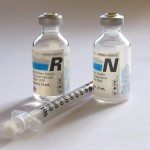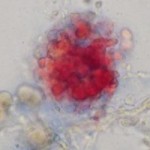New Nutrition Guidelines from the ADA: One Size Doesn’t Fit All

The American Diabetes Association (ADA) has released a new position statement on nutrition therapy for patients with diabetes. The last statement was published in 2008.

The American Diabetes Association (ADA) has released a new position statement on nutrition therapy for patients with diabetes. The last statement was published in 2008.

Type 1 diabetes was previously thought to render the pancreas completely unable to produce insulin, the hormone responsible for controlling sugar entry into cells and subsequent blood levels.

The American Diabetes Association recommends all people living with diabetes make nutrition therapy a part of their diabetes treatment plan, but emphasizes that there is no single eating pattern that is best for everyone, according to a position statement being published online Oct. 9 in Diabetes Care

It can be frustrating to explain the battle that all families face every hour of every day, and that can be compounded by having to deal with people’s common misunderstandings and misperceptions, including the widely-held belief that T1D is not a serious disease. Here are some of those myths.

Many people with type 2 diabetes are familiar with Byetta, a drug that helps raise their insulin levels. But a new study in the journal Diabetes Care suggests that the drug, known generically as exenatide, might have a role to play for people with type 1 diabetes as well.

The latest approach to islet transplantation, in which clusters of insulin-producing cells known as islets are transplanted from a donor pancreas into another person’s liver, has produced substantially improved results for patients with type 1 diabetes, and may offer a more durable alternative to a whole pancreas transplant.

“Brittle diabetes” does not refer to everyday ups and downs, but rather to a rare but real condition in which the PWD has volatile blood sugar swings that are nearly impossible to control.

Results from the study were mixed. On one hand, the hypothesis was proved true for patients who were either lean or had type 1 diabetes. But on the other, patients who were obese but otherwise healthy didn’t see any effects.

Results from the START clinical study (Study of Thymoglobulin to Arrest Newly Diagnosed Type 1 Diabetes), led by Dr. Steve Gitelman (University of California, San Francisco) and sponsored by the Immune Tolerance Network (ITN), are published today in The Lancet Diabetes & Endocrinology.

A drug in clinical trials has been shown to preserve insulin-producing pancreatic beta cells in nearly half of subjects newly diagnosed with type 1 diabetes. Results of the phase 2 trials are published in the journal Diabetes.

Eating foods that contain certain nutrients may help people with newly diagnosed type 1 diabetes continue producing some insulin for as long as two years, a new study finds.

Previous studies examining the risk of disability associated with diabetes have produced varying results, ranging from no association, to a doubling of risk. The new study is the first meta-analysis to pool estimates taken from earlier studies, providing a more reliable estimate of the likely risk of disability associated with diabetes.

Researchers analyzed data from the CDC, which has followed a cohort of patients with type 1 diabetes for 22 years.

Patients with type 1 diabetes and type A behaviors had a significantly lower mortality risk during 22 years of follow-up, investigators reported.

Infants who receive their first solid food either early or late — before the age of 4 months or at 6 months or older — are at increased risk of developing type 1 diabetes, new research suggests.

Will people with type 1 diabetes ever see an end to their need for insulin? For adults, that prospect doesn’t seem too likely. But new research from Boston Children’s Hospital generates genuine hope that by the time they are grownups, the 215,000 diabetic children in the US will be able put away their insulin kits […]

Kirstine Bell, a PhD candidate at the University of Sydney, reported in a review and meta-analysis of six randomized, controlled trials, carbohydrate counting slightly improved glycemic control with a mean drop in glycated hemoglobin

Infections that occur later don’t seem to pose as high as risk. When infants between 6 and 12 months had a respiratory illness, their risk only increased by 32 percent, the study found.

A “reverse vaccine” that allows people with Type 1 diabetes to produce their own insulin has passed its first test with human subjects, according to a new study. The success points to a potential new strategy for treating those in the early stages of the disease, experts said.

It may be possible to reverse type 1 diabetes by training a patient’s own immune system to stop attacking their body, an early trial suggests. A study in 80 patients, published in the journal Science Translational Medicine, showed a vaccine could retrain their immune system.